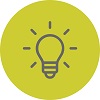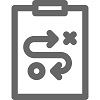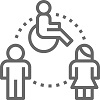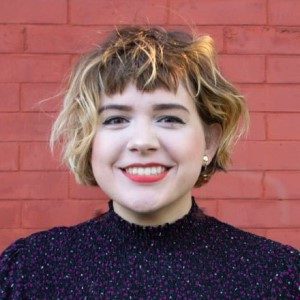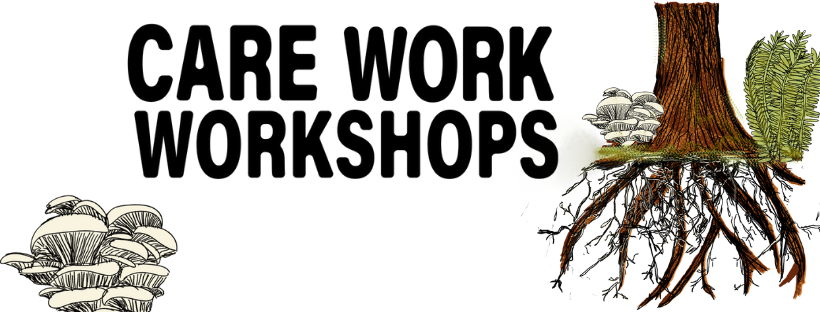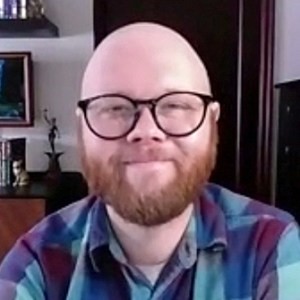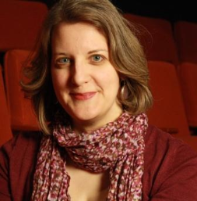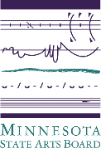What does it mean to empower people with accessible information? How can we amplify without duplicating efforts and overproducing?
Over the past months, staff at Arts Midwest faced those questions before launching a new project called the Ideas Hub. For context, Arts Midwest is one of six Regional Arts Organizations, guided by a mission that centers creativity, leadership, and Midwestern communities. Based in Minneapolis, we grow, gather, and invest in creative organizations and communities throughout the nine-state region of Illinois, Indiana, Iowa, Michigan, Minnesota, North Dakota, Ohio, South Dakota, and Wisconsin and beyond.
The Ideas Hub
The Ideas Hub is a collection of free, curated articles and tools meant to help creative leaders foster growth within their organizations. Some of the resources come from Arts Midwest’s ArtsLab curriculum, and some were newly created to amplify pre-existing information. The project sparked from a shared belief that everyone deserves meaningful arts experiences and has a right to access information to help them advance creativity in our region and beyond.
In hopes of encouraging others to embrace that idea, we engaged two partners who are forging the path in accessibility work to author articles for the Ideas Hub. Here is what came out of it!
Creating an Accessibility Plan for your Organization
As someone new to moving accessibility forward in an organizational setting, I’ve found the number of checklists and handbooks can feel overwhelming. It can be hard to know where to jump in. In the name of access, working with these resources should be inviting to folks at any entry level. The experience should offer clarity on the importance of accessibility and concrete steps for advancing it within one’s unique organization.
Something like that does exist in the form of Metropolitan Regional Arts Council’s DIY Access Planning Workbook, created by Scott Artley (Accessibility Program Director, MRAC). MRAC improves arts access for communities in the seven-county metropolitan area through support to artists and organizations. Among their guiding principles is advancing accessibility in all aspects of their work.
In researching access plans, Scott’s do-it-yourself workbook stood out to me with its welcoming tone and digestible format. The workbook is also unique in that it is designed for organizations of all sizes, capacities, and resources. Soon after exploring it, I spoke with Scott about creating a resource to further contextualize the workbook and welcome arts and cultural organizations interested in this work.
In “Creating an Accessibility Plan for your Organization,” Scott introduces the concept and importance of accessibility planning for organizations working to meet Americans with Disabilities Act (ADA) laws and make their programming, culture, and services more inclusive:
- Scott walks you through the workbook and describes the main categories of access to consider in an organizational setting.
- They guide you through three key steps for each of those categories: Audit, Plan, and Coordinate.
- Within these categories, he gives guidance on naming your current efforts, known barriers, and short- and long-term goals in accessibility work.
- In addition to this easy-to-follow structure, he provides context and real-life examples which help to visualize how you can improve accessibility within your organization.
As Scott notes in the article, there is no previous expertise or formal process needed to start this work. Dive in – you are in good hands with this workbook!
Embracing the Social Model of Disability for Arts Organizations
Please note: in this section, the phrase “disabled people” is used instead of “person with a disability.” This phrasing aligns with the Social Model of Disability understanding that people are disabled by environmental and societal barriers.
While getting grounded in accessibility work, it is helpful to learn about frameworks in which people view disability and access, and to understand the ways in which we perpetuate ableism in our society. This deeper understanding can complement and inform the work that comes with an access plan.
As the larger disability community is diverse in their experiences, views, and preferences, there are many different understandings of disability. Some folks go by the Social Model of Understanding Disability. This model is a way of viewing the world created by disabled people and it says that people are disabled by barriers in society, not by impairment or difference. Barriers can be physical, social, attitudinal, and more. It is important that arts and cultural organizations are aware of this model as they work to make their programs, services, and communications inclusive.
I had the chance to meet and work with Colin Hambrook and Dave Lupton of Disability Arts Online as they agreed to write a piece on the Social Model for the Ideas Hub. Disability Arts Online is an organization that strongly embraces the Social Model. DAO is led by disabled people who advance disability arts and culture through their online journal and collaborations.
In “Embracing the Social Model of Disability for Arts Organizations,” DAO starts by describing the Medical Model of Understanding Disability and how it harmfully frames disability as an individual’s burden and problem to be solved. They explain how the Social Model was created in response to this to challenge society’s negative perceptions of disability and barriers that it creates. As the Social Model defines disability as the lived experience of barriers, it advocates for the shared, social responsibility of removing barriers and improving access. DAO describes examples of societal barriers and how those may specifically appear within arts programming and experiences, including first-hand accounts from disabled artists, and multiple possible solutions for making your programs and offerings more accessible.
I recommend reading this piece while working through the “Audit” and “Plan” section in Scott’s workbook. This may help to identify the barriers in your organization and get an idea of how you are uniquely positioned to improve access.
Questions on this article or the Ideas Hub? Reach out to Carly Newhouse
About the Author
Carly Newhouse (she/they) is a Program & Accessibility Manager at Arts Midwest and helps to advance accessibility, connectivity, and capacity building across its programs and communications. Carly has 6 years of experience in arts management, community engagement, and events management. She is excited about the recent shift to facilitating accessibility efforts in her organization and looks forward to connecting with more folks advancing accessibility in the region.
The Minnesota Access Alliance (MNAA) works to raise the bar for accessibility across the culture and arts sectors in Minnesota. Accessibility resources and a calendar of accessible arts and cultural events in the state are available at mnaccess.org. You can also share your expertise and learn from others in the MNAA Facebook group.
Stay connected about accessible events, learning opportunities, and resources that may be of interest to you by joining our email list.

